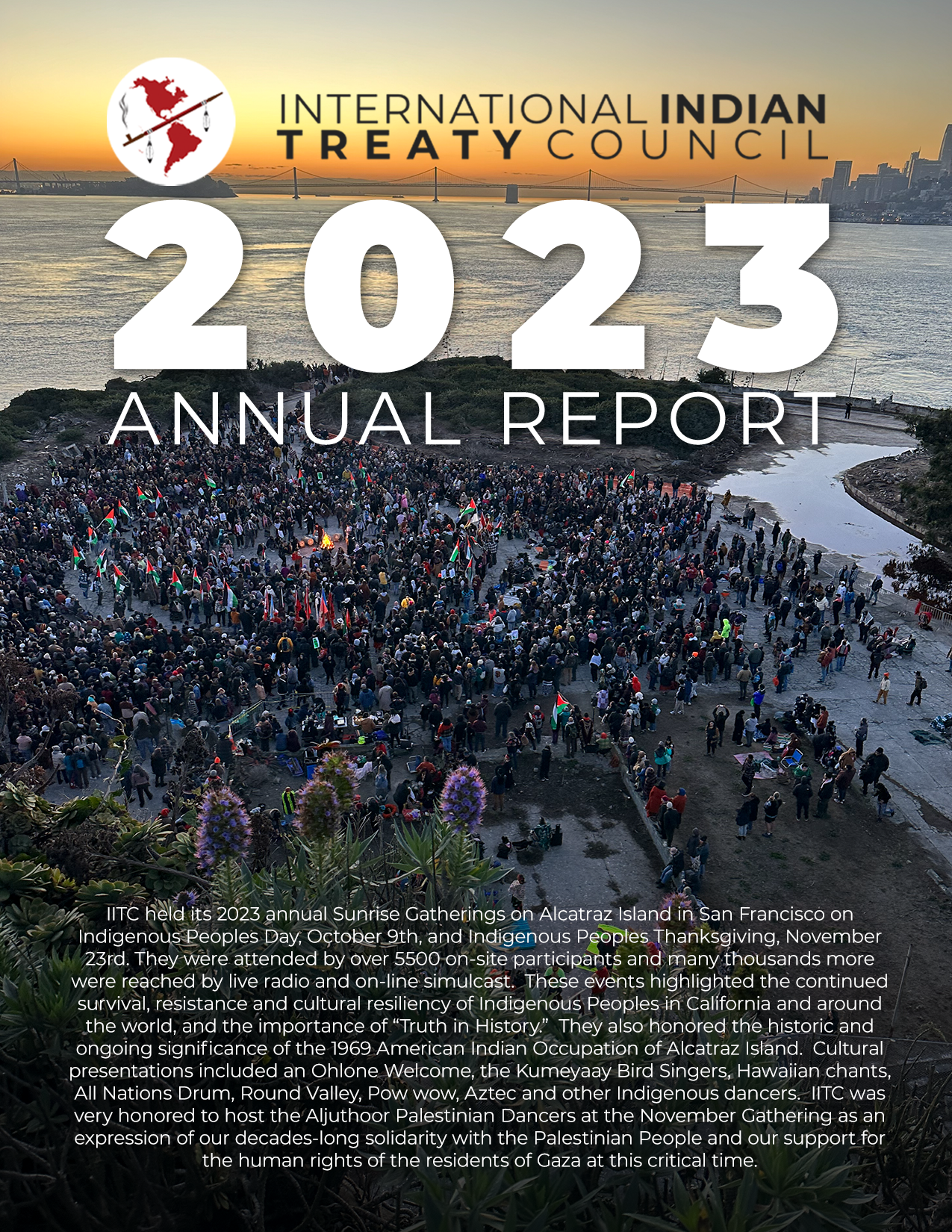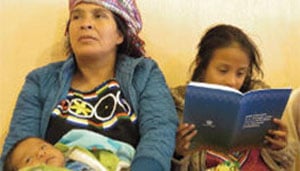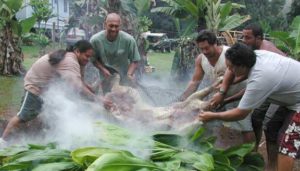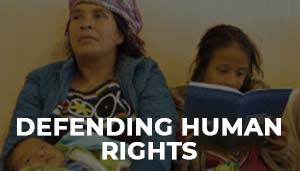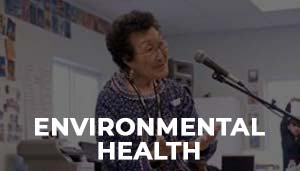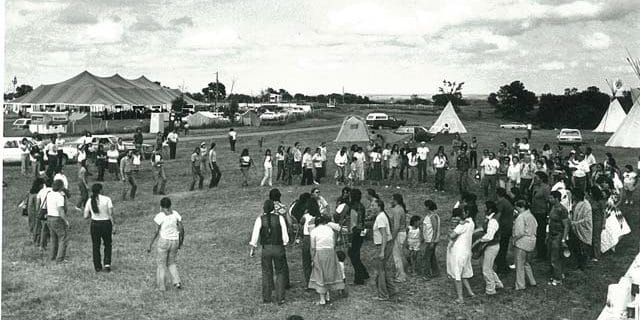In October 2019, the Special Rapporteur on the right to food will present a thematic report to the United Nations General Assembly that focuses on the implementation of Sustainable Development Goal 2 and other goals relevant to achieving zero hunger and reducing malnutrition by 2030 from a right to food perspective.
For that purpose, the Special Rapporteur is seeking inputs from States, NGOs, private sector actors, academic institutions and all relevant stakeholders, through responses to the question below. Your replies will inform the Special Rapporteur’s analysis and contribute to her thematic report.
Background
It has been over three years since the Sustainable Development Goals officially came into force. The 2030 Agenda sets an ambitious objective: a model of more equitable and sustainable development that puts people at its centre and is explicitly grounded in all human rights, as expressed through the language “no one left behind.” There has been some measurable progress in some countries: for example, the 2018 SDG Progress Report found that extreme poverty has fallen below 11% of the world population. This metric should suggest that we are moving closer to achieving zero hunger per SDG 2, yet it also stands at odds with reports that hunger and malnutrition are increasing.
The 2018 various reports, including FAO, indicate that after a prolonged decline, world hunger appears to be on the rise again. The proportion of undernourished people worldwide increased from 10.6 per cent in 2015 to 11.0 per cent in 2016. This translates to 815 million undernourished people worldwide in 2016, up from 777 million in 2015. In 2017, 151 million children under age 5 suffered from stunting (low height for their age), 51 million suffered from wasting (low weight for height), and 38 million were overweight. In addition to economic, political and structural problems at the global and national levels, external factors such as conflict, drought and other natural disasters linked to climate change are among the key factors contributing to these trends.
Meanwhile, evidence suggests that the SDGs are stalling, not just in the context of SDG2, but in their entirety. Despite efforts to elicit widespread participation in the 2030 Agenda, institutional impediments have hindered effective implementation of the SDGs. Persistent inequalities based on gender, ethnicity, nationality and geography have further undermined the SDGs’ success. The Special Rapporteur seeks to identify these challenges in the hopes that the SDGs may still reach their full potential and enable the realization of human rights, including the right to food. At the same time, the Special Rapporteur would like to emphasize positive developments and good practices that help to eliminate hunger and malnutrition.
Question
In light of the background, above, please provide a brief description of any good practices – particularly practices based on a human rights approach – of States and other stakeholders, including private companies, to address inequality, and to monitor, support and implement progress under the relevant SDGs, notably SDG 2.
Submission of responses
We strongly encourage you to please send your responses in Word format by email to [email protected] using the email title “Submission to report on SDGs”.
Submissions will also be accepted via regular mail at the following address:
ATTN: Special Rapporteur on the right to food
Special Procedures Branch
Office of the High Commissioner for Human Rights
Mailing address: UNOG-OHCHR, CH-1211 Geneva 10
We kindly request that your submission be concise and limited to a maximum of 5 pages. Due to a limited capacity for translation, we also request that your inputs be submitted in English or French.
To avoid unnecessary duplication: if you have recently replied to other questionnaires from UN human rights mechanisms (or other international bodies) with information that would be relevant to this request as well, we welcome your directing us to those replies.
The deadline for submission is 20 May 2019.
Unless otherwise requested, all submissions will be made publicly available and posted on the Special Rapporteur’s homepage at the OHCHR website.
Please feel free to share this message and the questions with anyone who might be interested in contributing.
Share this post
Call for submissions: Sustainable Development Goal 2 and the right to food
In October 2019, the Special Rapporteur on the right to food will present a thematic report to the United Nations General Assembly that focuses on the implementation of Sustainable Development Goal 2 and other goals relevant to achieving zero hunger and reducing malnutrition by 2030 from a right to food perspective.
For that purpose, the Special Rapporteur is seeking inputs from States, NGOs, private sector actors, academic institutions and all relevant stakeholders, through responses to the question below. Your replies will inform the Special Rapporteur’s analysis and contribute to her thematic report.
Background
It has been over three years since the Sustainable Development Goals officially came into force. The 2030 Agenda sets an ambitious objective: a model of more equitable and sustainable development that puts people at its centre and is explicitly grounded in all human rights, as expressed through the language “no one left behind.” There has been some measurable progress in some countries: for example, the 2018 SDG Progress Report found that extreme poverty has fallen below 11% of the world population. This metric should suggest that we are moving closer to achieving zero hunger per SDG 2, yet it also stands at odds with reports that hunger and malnutrition are increasing.
The 2018 various reports, including FAO, indicate that after a prolonged decline, world hunger appears to be on the rise again. The proportion of undernourished people worldwide increased from 10.6 per cent in 2015 to 11.0 per cent in 2016. This translates to 815 million undernourished people worldwide in 2016, up from 777 million in 2015. In 2017, 151 million children under age 5 suffered from stunting (low height for their age), 51 million suffered from wasting (low weight for height), and 38 million were overweight. In addition to economic, political and structural problems at the global and national levels, external factors such as conflict, drought and other natural disasters linked to climate change are among the key factors contributing to these trends.
Meanwhile, evidence suggests that the SDGs are stalling, not just in the context of SDG2, but in their entirety. Despite efforts to elicit widespread participation in the 2030 Agenda, institutional impediments have hindered effective implementation of the SDGs. Persistent inequalities based on gender, ethnicity, nationality and geography have further undermined the SDGs’ success. The Special Rapporteur seeks to identify these challenges in the hopes that the SDGs may still reach their full potential and enable the realization of human rights, including the right to food. At the same time, the Special Rapporteur would like to emphasize positive developments and good practices that help to eliminate hunger and malnutrition.
Question
In light of the background, above, please provide a brief description of any good practices – particularly practices based on a human rights approach – of States and other stakeholders, including private companies, to address inequality, and to monitor, support and implement progress under the relevant SDGs, notably SDG 2.
Submission of responses
We strongly encourage you to please send your responses in Word format by email to [email protected] using the email title “Submission to report on SDGs”.
Submissions will also be accepted via regular mail at the following address:
ATTN: Special Rapporteur on the right to food
Special Procedures Branch
Office of the High Commissioner for Human Rights
Mailing address: UNOG-OHCHR, CH-1211 Geneva 10
We kindly request that your submission be concise and limited to a maximum of 5 pages. Due to a limited capacity for translation, we also request that your inputs be submitted in English or French.
To avoid unnecessary duplication: if you have recently replied to other questionnaires from UN human rights mechanisms (or other international bodies) with information that would be relevant to this request as well, we welcome your directing us to those replies.
The deadline for submission is 20 May 2019.
Unless otherwise requested, all submissions will be made publicly available and posted on the Special Rapporteur’s homepage at the OHCHR website.
Please feel free to share this message and the questions with anyone who might be interested in contributing.
